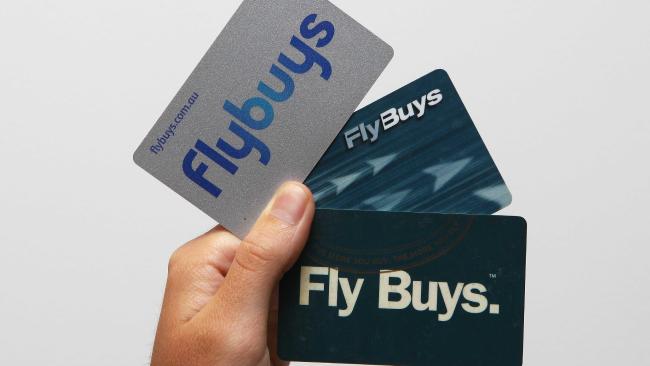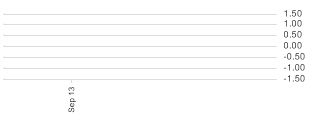
Adam Posner chief executive of Directivity. Picture: Brendan Francis
SAY goodbye to your frequent flyer points.
The head of Australia’s largest cashback shopping site has predicted points-based loyalty programs will be all but gone within five years as more shoppers opt for immediate discounts.
Andrew Clarke, founder of Cashrewards, says more than 100,000 members have signed up to his site, 80,000 of those in the past 12 months, driving $150 million in consumer spending to retailers including Woolworths, Coles, David Jones and eBay.
He believes that growth is due to a decline in Australia’s longstanding love affair with loyalty programs. “People are after instant gratification now,” he said.
“Traditional rewards programs have become too complex over time, while the rewards have become ever smaller.”
This week, Coles launched an online travel booking site to tie in with its Flybuys loyalty program, in more of a symbolic gesture than anything else.
Woolworths, which generated fierce customer backlash late last year with the dumping of its Qantas Frequent Flyer partnership, thinks customers are suffering “points fatigue” and want straight discounts.
Coles says it’s all about giving the customer choice, and is standing firmly behind its points-based system. “What our competitors proved is there isn’t one solution for everybody,” Coles Flybuys general manager Adam Story told news.com.au.
“Many say they want money off shopping, and our $10 vouchers remain popular. But many say they want to save up their points for something meaningful, whether that’s travel or buying an iPad.”

Coles this week launched Flybuys Travel.Source:Gold Coast Bulletin
On the face of it, Woolworths’ decision seemed to be logical.
The supermarket giant was spending $80 million a year buying points from Qantas to give to customers, 60 per cent of whom hadn’t redeemed any points in the past 12 months and 33 per cent of whom had never redeemed any points at all.
A study last year by marketing firm Directivity found shoppers who were ditching traditional loyalty programs did so because they were not earning enough points — and this sentiment has grown from 51 per cent in 2014 to 59 per cent in 2015.
From the same survey, 40 per cent of the respondents said that the rewards didn’t appeal to them, and 23 per cent said there were too many cards in their wallet — up from 13 per cent of people in 2013.
Research commissioned by Woolworths suggested 68 per cent of customers favoured dollars off their shop, compared with just 9 per cent who favoured Frequent Flyer points. Mr Clarke argues the backlash against Woolworths was from a very noisy minority.
“I suppose it was that nine per cent,” he said.
The increasingly “mind-boggling” complexity of rewards programs, the lower earn rates due to factors such as changes to interchange fees, and the ever-expanding number of them will gradually drive consumers away, Mr Clarke says.
“It’s not that points will be discontinued altogether, it’s just that consumers will not care to interact with them,” he said. “Yes, there is the aspirational aspect, but at the end of the day cash is king.”

Steve Hui, aka The Points Whisperer.Source:Supplied
According to Steve Hui, founder of rewards point management firm iFlyFlat, it’s more complicated than that. Mr Hui, aka ‘The Points Whisperer’, specialises in “helping customers fly business class for the price of economy.”
“You can never get a discount as big as that by getting cashback,” he said. “People want aspirational rewards, they don’t want discounts. Woolworths did all of that research, but people just love collect points, even if they don’t know what they’re going to do with them.”
In December, Woolworths announced a new deal with Qantas under which customers would be able to convert 10 Woolworths Dollars into 870 Qantas points.
Mr Hui says once that new partnership gets off the ground, Woolworths’ program has the potential to offer better value than Coles. The big problem, though, is the limited number of items customers can earn points on.
“Woolworths’ program is a really a poor marketing exercise disguised as a loyalty reward, when it is just a discount,” he said. “It’s a disincentive for people who don’t have the card — they just won’t buy the [orange-ticketed] item.”
Dr Gary Mortimer, retail expert with the QUT Business School, says loyalty programs are moving away from strictly transaction-based systems into areas such as health and travel.
He says partnerships like the deal between Qantas and NIB will become more common. Under that deal, Qantas Loyalty customers will be able to earn Qantas Points by staying active — tracked via FitBits.

Woolworths CEO Brad Banducci. Picture: Cameron RichardsonSource:News Corp Australia
“The amount of data that both Coles and Woolworths have through Loyalty Pacific and Quantium really enables them to look at other areas of the business such as insurance,” he said.
“Loyalty has really become a way to profile the customer. Woolworths now uses data to ascertain insurance premiums — if a customer buys a particular range of food, fills up their car with petrol late at night, they’re probably not a great insurance risk.”
The big trend overseas, which Dr Mortimer predicts will eventually arrive in Australia, is the shift to immediacy and choice.
Upmarket UK supermarket Waitrose, for example, has effectively flipped the value exchange by offering 20 per cent off shoppers’ 10 favourite items upfront just by using the card.
“Rewards programs have historically said, shop with us lots and we’ll give you points and eventually you might accrue enough to buy something or take a flight,” he said.
“This has allowed the customer to take control of the interaction. Customers want to be able to buy what we want at the price we want.”
Coles did something similar when it relaunched Flybuys by asking customers to select their five favourite items. That allowed it to quickly compile a list of top items and push back on suppliers for better prices.
“Meat went down to $5 a kilo, Weet-Bix soon went down in price,” Dr Mortimer said.
On the other end, he believes some retailers will follow the lead of premium UK grocery chain Marks & Spencer, which has begun experimenting with non-monetary loyalty rewards.
“They’re giving you money-can’t-buy experiences. So if you do an online survey for them, or if you write a testimonial about Marks & Spencer on your Facebook, they’ll invite you to a wine tasting or tickets to a community event.”




























